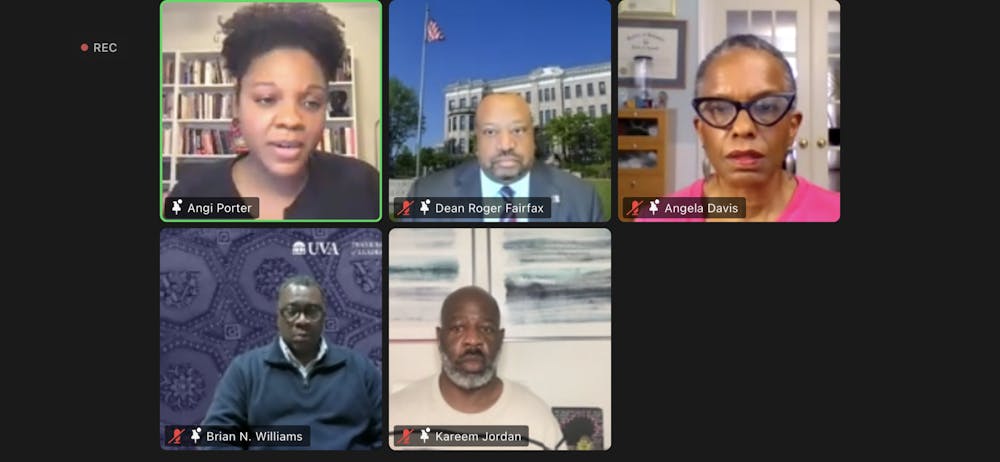The American University Washington College of Law hosted a virtual teach-in on where the country can go after the death of Tyre Nichols, a 29-year-old Black man who was killed after being beaten by five Memphis police officers.
Roger Fairfax, the dean and a professor at WCL, moderated the discussion, which included Angela J. Davis, WCL distinguished professor of law; Kareem Jordan, associate professor in the School of Public Affairs; Angi Porter, assistant professor of law in WCL and Brian Williams, associate professor of public policy at the University of Virginia.
The panelists discussed what AU community members can do in order to bring an end to police violence against Black Americans in the U.S.
Much of the call to action that the panelists articulated centered around becoming involved in policy changes at local and state levels.
“Everybody can’t do everything, but we can all do something,” Davis said.
Part of the “something” Davis mentioned were her ideas on defunding police and allocating those funds to community groups that are better equipped to support individuals who are mentally ill or facing substance use disorder in the community.
Porter added that along with shrinking police force budgets, there needs to be an entire reorganization effort with an interdisciplinary approach toward creating more extensive police training.
She said that throughout all of this work, there needs to be a return to studying the history of oppression and activism to avoid the dangers that come with being detached from the successes and failures of the past.
“It’s going to take sustained study as we act,” Porter said.
Jordan said changing the racial makeup of police, as some suggest as a solution, will not fix the problem, but instead a restructuring of the entire system must be undertaken.
“They have no business to be doing what they are doing,” Jordan said of continued police violence.
He said most crime is intraracial, as to urge people to dispel the myth of Black-on-Black crime being more prevalent. He also called on those in attendance to stop ignoring the everyday slights racial minorities experience at the hands of the police.
“Am I selfish for not wanting to die before I see the progress?” Jordan said.
Williams brought the issue of polarization to the table and argued to create brave spaces where people with different points of view can hold candid conversations.
“The days of compromise are the days of old,” Williams said.
This article was edited by Zoe Bell, Jordan Young and Nina Heller. Copyediting by Isabelle Kravis, Sarah Clayton, Stella Guzik, Leta Lattin





